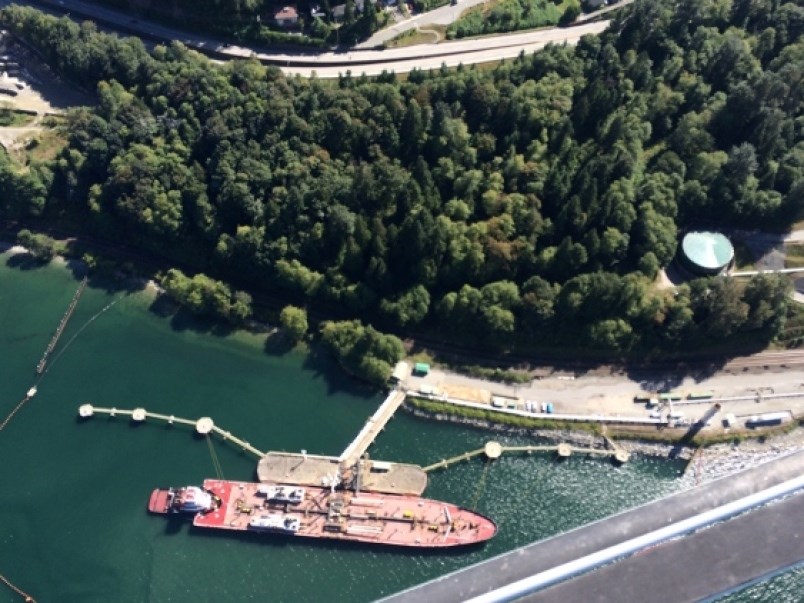Two weeks after the federal Liberal government announced approval of the $6.8-billion Kinder Morgan pipeline expansion project, Burnaby North-Seymour MP Terry Beech has broken his silence on the issue, saying while the decision was “tough” for him and many of his constituents, he is standing behind Prime Minister Justin Trudeau and the Liberal cabinet, describing Trudeau as an “environmental champion.”
Beech spoke to the North Shore News after releasing a 24-minute YouTube video statement on the pipeline approval this week.
While Beech acknowledged most of the constituents he’s heard from were disappointed in the decision, he said he plans to stay in the Liberal caucus and advocate for local interests.
Crossing the floor to join the Green Party or sit as an independent – as some suggested – was never a possibility, said Beech, despite his own work on the issue, which cast doubts on the rationale for the project.
“I ran on a platform I believe in. I still have a lot of work to do to deliver that,” he said. “Crossing the floor over a single issue when we’re dealing with hundreds of issues wasn’t a consideration.”
Beech added remaining in the Liberal caucus puts him in the best possible position to continue advocating for his constituents.
Speculation about Beech’s plans had surfaced after the rookie MP went into radio silence following the decision Nov. 29, rejecting all but one request for interviews until this week.
In the lead-up to the decision, Beech made no secret about his own questions surrounding the Trans Mountain expansion project, which will triple the Edmonton-to-Burnaby pipeline’s capacity from 300,000 barrels a day to 890,000 barrels a day.
Beech presented a report critical of the National Energy Board process that recommended approval of the expansion at a ministerial panel hearing in August.
In particular, Beech targeted the economic analysis Trans Mountain commissioned that the NEB used in determining the project would be in the national interest, saying it “incentivizes exaggeration of the benefits while minimizing the costs or risks.”
Beech also produced a detailed report on the issue that he used in an attempt to lobby Liberal caucus colleagues.
More than any other B.C. MP, Beech has been at the forefront of the pipeline issue. His riding straddles Burrard Inlet, where oil tanker traffic is expected to triple if the project goes ahead, and includes both the Westridge pipeline terminus in Burnaby where oil tankers would be loaded and the traditional territory of North Vancouver’s Tsleil-Waututh people who are adamantly opposed to the project.
Beech said this week he’d hoped his work on the issue would have an impact on cabinet’s decision on the issue.
“I wouldn’t have been working so hard on this matter if I didn’t think I could impact my government and the decision-making process,” he said.
Beech said he believes the Liberals have taken many of the underlying concerns into account, such as the potential impact on climate change, which he said is being addressed by the adoption of a national price on carbon.
He said that issue was tied to the pipeline decision in considering the national interest – a reference to politics in Alberta where a carbon tax was considered a non-starter without a pipeline approval.
“If you zoom out from the Burnaby Mountain Trans Mountain pipeline decision and look at some of the other issues that are wrapped around it … there are some pretty complicated interwoven decisions that had to be made,” he said.
Beech said his office has received hundreds of emails and phone calls since the decision was made. Most people, while not happy with the decision, have appreciated the work he put in on the issue, he said.
Beech said he will continue to listen to constituents on the issue – even if that involves attending protests or actions of civil disobedience that a number of groups have said they’ll take part in if work on the project begins.
Meanwhile the Tsleil-Waututh have vowed to fight the pipeline approval in court on issues of aboriginal rights and title.
Beech declined to speculate on what the decision might mean for his own chances of re-election in the riding. “It’s not my job to defend my seat,” he said. “My job is to do the best job I can for my constituents.”



